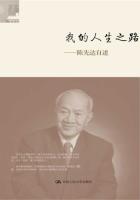It gave to the Roman Catholic inhabitants the free exercise of their religion, subject to a modified oath of allegiance, and confirmed the clergy in their right "to hold, receive and enjoy their accustomed dues and rights, with respect to such persons only as shall confess the said religion." The promised elective Assembly was not granted, but a Council appointed by the Crown received a measure of legislative power.
On his return to Canada in September, 1774, Carleton reported that the Canadians had "testified the strongest marks of Joy and Gratitude and Fidelity to their King and to His Government for the late Arrangements made at Home in their Favor." The "most respectable part of the English," he continued, urged peaceful acceptance of the new order.Evidently, however, the respectable members of society were few, as the great body of the English settlers joined in a petition for the repeal of the Act on the ground that it deprived them of the incalculable benefits of habeas corpus and trial by jury.The Montreal merchants, whether, as Carleton commented, they "were of a more turbulent Turn, or that they caught the Fire from some Colonists settled among them," were particularly outspoken in the town meetings they held.In the older colonies the opposition was still more emphatic.An Act which hemmed them in to the seacoast, established on the American continent a Church they feared and hated, and continued an autocratic political system, appeared to many to be the undoing of the work of Pitt and Wolfe and the revival on the banks of the St.Lawrence and the Mississippi of a serious menace to their liberty and progress.
Then came the clash at Lexington, and the War of American Independence had begun.The causes, the course, and the ending of that great civil war have been treated elsewhere in this series.*Here it is necessary only to note its bearings on the fate of Canada.
* See "The Eve of the Revolution" and "Washington and His Comrades in Arms" (in "The Chronicles of America").
Early in 1775 the Continental Congress undertook the conquest of Canada, or, as it was more diplomatically phrased, the relief of its inhabitants from British tyranny.Richard Montgomery led an expedition over the old route by Lake Champlain and the Richelieu, along which French and Indian raiding parties used to pass years before, and Benedict Arnold made a daring and difficult march up the Kennebec and down the Chaudiere to Quebec.
Montreal fell to Montgomery; and Carleton himself escaped capture only by the audacity of some French-Canadian voyageurs, who, under cover of darkness, rowed his whaleboat or paddled it with their hands silently past the American sentinels on the shore.
Once down the river and in Quebec, Carleton threw himself with vigor and skill into the defense of his capital.His generalship and the natural strength of the position proved more than a match for Montgomery and Arnold.Montgomery was killed and Arnold wounded in a vain attempt to carry the city by storm on the last night of 1775.At Montreal a delegation from Congress, composed of Benjamin Franklin, Samuel Chase, and Charles Carroll of Carrollton, accompanied by Carroll's brother, a Jesuit priest and a future archbishop, failed to achieve-more by diplomacy than their generals had done by the sword.The Canadians seemed, content enough to wear the British yoke.In the spring, when a British fleet arrived with reenforcements, the American troops retired in haste and, before the Declaration of Independence had been proclaimed, Canada was free from the last of its ten thousand invaders.
The expedition had put Carleton's policy to the test.On the whole it stood the strain.The seigneurs had rallied to the Government which had restored their rights, and the clergy had called on the people to stand fast by the King.So far all went as Carleton had hoped: "The Noblesse, Clergy, and greater part of the Bourgeoisie," he wrote, "have given Government every Assistance in their Power." But the habitants refused to follow their appointed leaders with the old docility, and some even mobbed the seigneurs who tried to enroll them.Ten years of freedom had worked a democratic change in them, and they were much less enthusiastic than their betters about the restoration of seigneurial privileges.Carleton, like many another, had held as public opinion what were merely the opinions of those whom he met at dinner."These people had been governed with too loose a rein for many years," he now wrote to Burgoyne, "and had imbibed too much of the American Spirit of Licentiousness and Independence administered by a numerous and turbulent Faction here, to be suddenly restored to a proper and desirable Subordination." A few of the habitants joined his forces; fewer joined the invaders or sold them supplies--till they grew suspicious of paper "Continentals." But the majority held passively aloof.Even when France joined the warring colonies and Admiral d'Estaing appealed to the Canadians to rise, they did not heed; though it is difficult to say what the result would have been if Washington had agreed to Lafayette's plan of a joint French and American invasion in 1778.
Nova Scotia also held aloof, in spite of the fact that many of the men who had come from New England and from Ulster were eager to join the colonies to the south.In Nova Scotia democracy was a less hardy plant than in Massachusetts.The town and township institutions, which had been the nurseries of resistance in New England, had not been allowed to take root there.The circumstances of the founding of Halifax had given ripe to a greater tendency, which lasted long, to lean upon the mother country.The Maine wilderness made intercourse between Nova Scotia and New England difficult by land, and the British fleet was in control of the sea until near the close of the war.Nova Scotia stood by Great Britain, and was reserved to become part of a northern nation still in the making.















